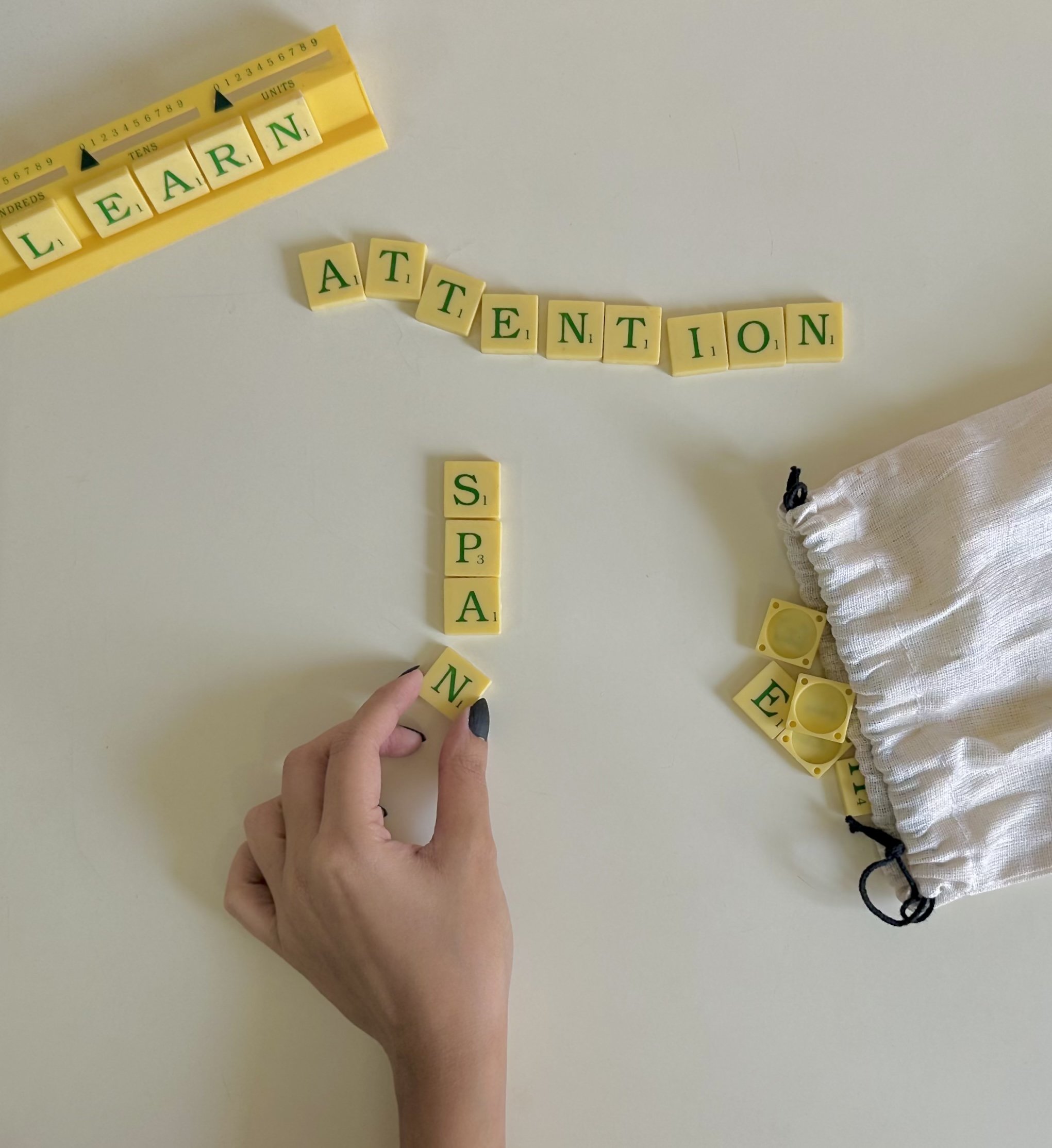Attention Span Issues and a Hidden Key
I am quite baffled right now. I really don’t know how to select words for this experience. My friend and her cousin visited us last week. That little cousin was perhaps six years old. He is a dimpled boy. He continuously smiled and his dimples looked vibrant. He walked in and out of my room. He stared at me and my room with his wide eyes. He answered me everything in one word but didn’t continue any conversation. When I left him loose ends to pick up and asked ‘then’, he just shook off his head. Each time he moved his eyes away and stooped the conversation either with a shrug or by jumping on the bed. And if he did not like the question, he punched cushions and pillows with almost every ounce of his energy.
I gifted him a scrabble box. He tore off the wrapping paper and looked at the box and letters for around a minute. He then grinned and said confidently, "I know how to make words. It’s for kids."
Then he dumped the box forcefully on a cushion and covered that with another. He did this without listening to my explanation on scrabble. My cousin laughed off, "He’s like this only."
She gave him her phone and said, "Play, and stay quiet." I still tried to interact with him. I asked him, "What is this game?"
He didn’t answer but directly showed me the screen. Then, after almost five minutes, he jumped on my friend and yelled, "I’m bored!"
Now my point is, "Was that a regular behavior, or was it just a defence mode or shy moment for a child?"
And my second point is, "Do we look like him?"
Isn’t his every move mirrored us? I mean, his overall behavior and our mental health look clumsily similar. Okay, let’s break this down. He walked in and out of my room continuously as we change our app, channel, or content preferences each time. He answered mostly in one word and avoided conversation, as we do while on any social media platform. Sometimes (that too has reduced significantly) we just hit "like" but avoid participating in any conversation. He assumed he knew that scrabble game and shrugged off every question about his incapability, as we often do while watching any tutorial or educational content. We say, "Huh, it’s bloody easy!" Or "Who doesn’t know this?"
We avoid questioning our incompetence. He said he’s bored without even knowing the meaning of that, and we on the other side procrastinate and say, "I’m bored. I’ve got nothing to do!"
We can’t really blame that child. Probably he has seen some of us, ‘the responsible adults’ who actually repeated all these jejune things in loop. He was perhaps imitating us.
But what is the exact reason behind this particular ruction? It’s a very common sketch of a lack of attention span. And it’s very unfortunate that we’re dropping our level each day. Data says, we’ve lost to a goldfish! Now, that’s quite a hard fact.
In the book "Rewire Your Brain" author discussed the fancy acronym FEED. Oh yeah, that too I find similar to a goldfish routine. Okay, let’s come back from my weird range of vagueness. Author John B. Arden said that this FEED is "…to help you remember the steps to rewire your brain: Focus, Effort, Effortlessness, and Determination."
The book has several neuroscience elements, including the recent study on neuroplasticity. And that makes it a must-read for anyone who is pretty much decisive to be more attentive. For me, these four steps can work more favorably if there’s a catalyst in you. That catalyst or that hidden key is the spark for learning something. As productivity works with the support of willpower, attention works with a sense of craftsmanship. If you want to learn more or learn something new, then zest automatically turns the FEED on. The one genuine urge to ‘learn’ keeps that attention span for a long, healthy duration. That child didn’t want to play scrabble because he didn’t know anything about it. He doesn’t even know the happiness of learning. I wish to meet him again. You and I are probably not getting that one reason for not swiping constantly. We are exposed to loads of different niches. We sometimes don’t even know why we are in a specific place. Probably, we need a complete digital resurgence. We need to find out what is actually for us, and that too without any prejudices. When we’re at some point, we should start thinking about why we're here. There should be a reason. And if that doesn’t work, then ask, "Why isn’t it working?" "Am I choosing the wrong place?" "What is the one thing that I was eagerly waiting to know?" I call these questions the pillars of Ina*.
If you’re on a cloud, then you may or may not wish to hang along a bird’s wing, but when you’re here, you have choices to build your attention with a learner’s cap. That should get a right swipe!
(*In Sanskrit, Ina (इन).—a. means determined or anything that is powerful.)
